The best new albums this week
The top layer of the albums cake
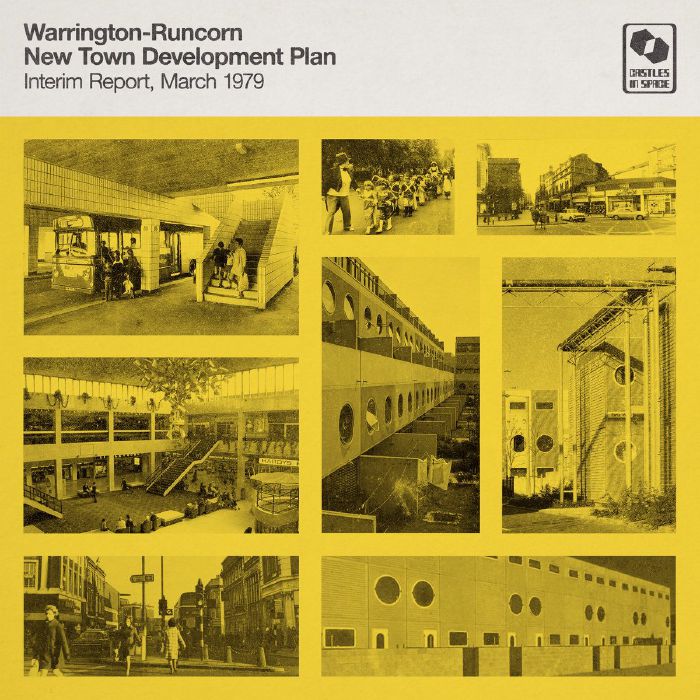
Warrington-Runcorn New Town Development Plan – Districts, Roads, Open Space (Castles In Space)
One of the three electronic highlights of this year’s End Of The Road festival (alongside the shamanic explorations of James Holden and Wacław Zimpel, and the searing industrial electro-noise of Scalping), Warrington-Runcorn New Town Development Plan delivered a set of retro-futurist electronica that perfectly mirrored their distinctive band name. To a backdrop of 70s public information films about the brave new dawn that the New Towns were supposedly about to deliver, composer Gordon Chapman-Fox created an effortlessly immersive world – the sound of Kraftwerk charting the ring roads of Milton Keynes rather than the autobahns of Europe. It was instantly engaging, leaving a crowd of new converts keen to experience more.
Right on cue, here’s the third Warrington album, following on from Interim Report, March 1979 and People & Industry (both released in 2021, although both supposedly soundtracks to life in Warrington-Runcorn in the 1970s). At EOTR, Chapman-Fox drew on the emotional themes that defines the first two records – a sense of hope and optimism, epitomised by clean, sparkling electronica, which then gave way to first a feeling of nostalgia for the simpler times that birthed that optimism, and then a feeling of deflation and disillusionment that that optimism had turned out to be misplaced. Album three, Districts, Roads, Open Space, apparently explores the individual spaces in the New Town, but it also builds on that hypnotic question of “what now?”
The album’s defining track is the opening 13 mins 44 secs long ‘Central Square’. You’d presume this would be the jewel of any nascent metropolis, but the analogue flutters and synth washes create a sense of decaying optimism – of an overgrown, untended square littered with moss covered statues. There’s a particular feel of primitive futurism to the slow dystopia unravelling here – think Silent Running, Tomorrow’s World, The Sinclair C5, Space 1999, Young Marble Giants, The Stylophone, Soylent Green – with a cinematic cameo from the late 60s. As the mournful melody line plays out, you can picture Charlton Heston on his knees howling: “You maniacs! God damn you all to hell!”
‘Community Square’ offers more of a pulsing, hopeful feel – as if Chapman-Fox is saying that grass roots solidarity can still save the day – but we soon return to the ruins with ‘Old Hall’, the sound of a ghost drifting around a once-grand ballroom. ‘Locking Stumps’ turns to the skies for inspiration and throbs with energy, but it’s an all-too-brief interlude before ‘The Key To A New Home Of Your Own’ charts disappointment and stasis with radioactive atmospherics and what could be the soundtrack to Blade Runner 1979. The closing ‘Buzby’s Lullaby’, named after the star of the 70s Post Office TV ads, feels initially like an anomaly – what sounds like a trim phone line achieving sentience and then drifting off to sleep – but its undercurrent of absence soon makes sense as part of the overall theme. The lights are on, but nobody’s home. Please leave a message after the tone.
So what now? Are the dreams of the New Towns long dead and all we have left is fading nostalgia? And where next for Chapman-Fox? After three albums can he continue to haunt the contraflows and municipal schemes? Whatever the future, this impeccably crafted and beautifully realised album fulfils the purpose of all good art, and asks question after question after question.
IW

Alvvays – Blue Rev (Polyvinyl)
A couple of years ago, fans of sweet and fuzzy indie pop started to wonder what had happened to one of their favourite bands. After 2017’s ‘Socialites’ added a broader, brighter sound and a sense of all-conquering confidence to the endearing fizz of Alvvays’ 2014 self-titled debut album, many expected the band’s next move to be a step up to truly mainstream success. But then….nothing. A few whispers of misfortune filtered out – early demos for the third album had been stolen by a burglar; a basement flood had almost destroyed the band’s equipment; Covid had stranded half of the band in Canada and half in the US – but they all had a whiff of prevarication to them. Sorry miss, the dog ate our third album.
Five years on, then, here’s ‘Blue Rev’. Have the band been using the time to polish and supercharge their effervescent pop style for global domination? Have they found a way to melt the rush of classic indie with the ambition and style of 80s pop? Will these songs be saving the day in 2062’s answer to Stranger Things? The answer, inevitable, is not really. ‘Blue Rev’ is an assured, accomplished, joyous, dynamic, energising blast of more of the same that stands shoulder-to-shoulder with ‘Antisocialites’ and gives a knowing wink, as if to say “You know what, it took us half a decade to realise it, but we don’t need to progress. We got it right last time.”
Welcome back, then, to soaring shoegaze-tinged fuzzpop (‘Pharmacist’, ‘Tom Verlaine’), sparkling jangle pop (‘After The Earthquake’), surging noisepop (‘Pomeranian Spinster’, ‘Pressed’), and the honeyed vocals of Molly Rankin. Everything you expect musically is present and correct. And welcome back to the relationship break-up themes first explored on ‘Antisocialites’, themselves the inescapable next step after the gloriously romantic ‘Archie, Marry Me’, a song which Rankin says still inspires unwanted marriage proposals to this day.
It’s here that you will find some progression for Alvvays, as ‘Blue Rev’ appears to be a full-on break up album. There’s no skirting around the fact this time – something has clearly gone wrong romantically (and might this have been the cause of the five year delay? We’ll never know as Rankin gives little away in interviews and pointedly sings “If there’s a role, I’ll play it” here). There’s even a narrative of sorts. ‘Easy On Your Own?’ and ‘After The Earthquake’ charts the relationship dissolution head on (“It wasn’t built to last”). ‘Pressed’ picks up the pieces and starts moving on (“I won’t apologise for something I’m not sorry for”). ‘Very Online Guy’ sees a wobble, as Rankin monitors her ex’s socials and admits “The truth is I’m afraid to turn away/When you’re ghosting me does anyone notice?” ‘Tile By Tile’ wobbles further (“At night I take calls from telemarketers/In hopes of hearing your drawl… I try wholeheartedly/but still end up on your lawn.”) ‘Velveteen’ has Rankin jealously eyeing a friend’s (her ex?) new relationship (“Who is she?/Because I know it can’t be me.”) ‘Pomeranian Spinster’ gets sick of moping and decides to really move the fuck on (“I’m going to get what I want/I don’t care who it hurts”). And ‘Bored In Bristol’ and ‘Lottery Noises” dream of new beginnings (“Now that you’re around, I want you to take a shot”).
If you’re already an Alvvays fan, this album is a joy. 14 short, driving songs with a narrative to dig into over time. If you’re not, then this 8/10, never too over-the-top, always perfectly pitched fuzz pop set is unlikely to win you over. But then, hey, maybe this record wasn’t made for you? A familiar pleasure, but a pleasure all the same.
IW

Suburban Knight – Hi8tus (Deeptrax)
It feels like there’s been at least some degree of recognition for James Pennington’s services to techno in more recent times. Suburban Knight is spoken about in reverential tones for anyone who takes the Detroit story seriously, and with good reason. Pennington’s early 12”s helped cement the instantly seminal status of Underground Resistance, via such mind-melting classics as ‘Nocturbulous Behaviour’ and ‘Echo Location’, although his first drop was as far back as 1987 on Transmat. Throughout his career, Pennington’s sound has sported a rich vocabulary distinctly other from most standard techno approaches. While there’s always plenty of funk and thrust for the club, his riffs, sound design and atmospheres err towards something more evocative, embodying the fullest expressive potential of techno.
Still, he has always remained a cult figure and his back catalogue moves in scattered flurries of activity which, from the outside, appear to be at the mercy of a fickle industry and perhaps not catching the right wave of wider popularity. A couple of 12” releases on Detroit Techno have edged Suburban Knight back into the picture over the last year or so, but now we’re treated to the first full-length since 2010’s Carnality Of Suburban Knight. The album format suits a sound like Pennington’s, which deals in nuance, detail and intrigue ahead of functional structure. His is a visionary approach like Drexciya, Anthony Shake Shakir or Carl Craig at his best (think More Songs About Food…).
This new album on Deeptrax feels like it deserves as much attention as possible – it’s an instant reminder of how Pennington is surely one of the most gifted to come out of Detroit’s revered techno community. This is techno as a broad church of sonic possibilities, reaching from the strident breaks and beats of ‘Far Far Away’ to the liquefied synth chills of house-y roller ‘French Sisaque’ on the first side and instantly laying down a mesmerising, subtly unsettling mood that holds true to Pennington’s unique artistic imprint. There’s so much more, from elegant dreamscape confessional ‘FMFIHS’ to the gothic chill and brittle swing of ‘Spiritual Ride’ and on, each piece a vividly realised emblem of just what Detroit techno can be in the right hands. It feels totally aligned with Pennington’s best-loved classics, and yet wholly new. When we’ve heard so many iterations of techno over the years, here comes an artist who can’t help but be fresh, every single time. Cop this album and treasure it – without any shred of exaggeration, it’s an instant classic.
OW
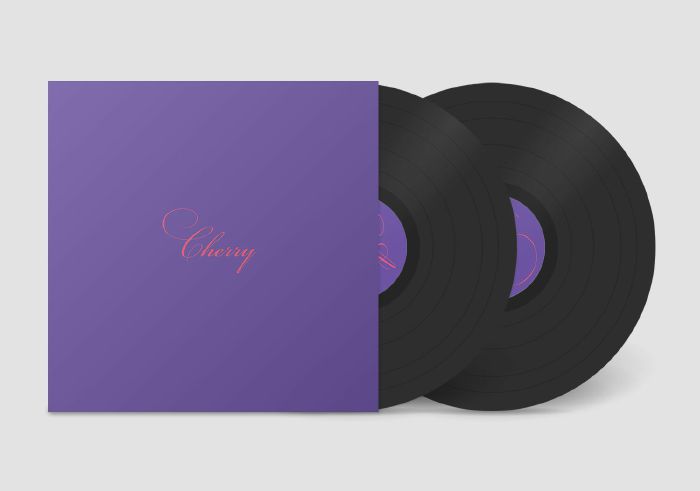
There aren’t too many electronic music players endowed with the creative chops of Dan Snaith, better known as Daphni (and perhaps even better known as Caribou). The Canadian artist has been responsible for a formidable body of genre-gliding work across his long and winding career. Recorded under his Daphni moniker over an extended period, ‘Cherry’ represents Snaith’s first long-playing release since 2017, so hopes are naturally sky high that some serious sonic delights are embedded among the 14 featured tracks.
Happily, perhaps predictably, the album doesn’t disappoint, elegant and unabated as the morphing topography between club and home listening is expertly navigated by the seasoned producer. From the intoxicating piano loops and glitchy drums of ‘Cloudy’ to the maniacal melodies and stirring rhythms of ‘Always There’, Snaith’s dazzling studio aptitude bursts from each and every bar. The album is effectively a collection of highlights, with each title deserving of more column inches than are available here.
The dissonant synth tapestry of ‘Crimson’ provides one of many memorable moments, while the synth-boogie sampling of ‘Falling’ sees Daphni in mischievous mood. The floating synths and drugged-up vocal chops of ‘Mania’ are well-suited to esoteric dancefloors, and unfettered disco house gets an uplifting nod via the rousing tempo and funked-up licks of ‘Take Two’. Stripped techno house arrives in the thumping form of ‘Mona’, before the mutant synth swirls of ‘Clavicle’ dive deep into off-kilter waters.
The mesmerising chants and unending loops of ‘Amber’ prove entirely hypnotic, twisting and turning over jagged rhythms and sub-rooted bass before morphing into the euphoric acid lines of closing track ‘Fly Away’. The title track deserves close attention too, its sinister synths and snarling bass unfurling over rapturous drums, brilliantly encapsulating the producer’s profound use of light and shadow. This is simply stunning from Daphni, and – barring a flurry of mind-blowing albums landing in the next couple of months – ‘Cherry’ ought to be a shoo-in when it comes to electronic album of the year contenders.
PC
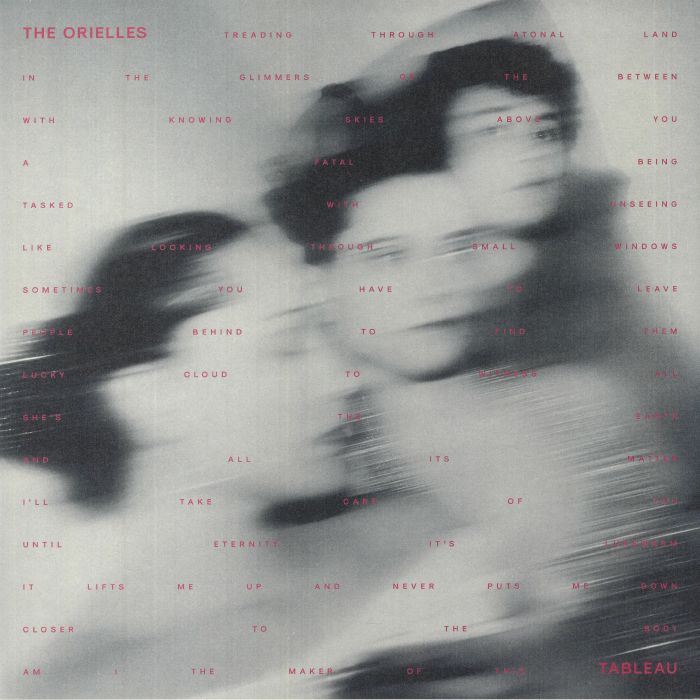
The Orielles – Tableau (Heavenly)
Talented and loveable in approximately equal measure, West Yorkshire wunderkinds The Orielles return with arguably their finest moment to date, delivering an epic and subtly surprising set of tracks on ‘Tableau’. The sense of experimentation is palpable as the three-piece glide through styles and textures. With string-heavy anthems (‘Beam/s’) pitched alongside dreamy soundscapes (‘Hornfleur Remembered’) and all manner of stylistic nooks charted across the 16-track collection. The album launches with the hallucinatory soundscapes of ‘Chromo I’ before soaring into the progged-out wonder of ‘Chromo II’, majestically setting the evolving tones of the opus that follows.
The enchanting vocals and disorienting melodies of ‘Airtight’ come next, closely followed by the sing-along psychedelia of ‘The Instrument’. ‘Improvisation 01’ finds The Orielles at their most abstract, meandering over eight-plus minutes of free-flowing experimentation before drifting into the stunning songwriting thrust of ‘Television’. Indeed, the ease with which the band shift through the gears is simply breathtaking, diving deep into the brooding depths via the growling bass and splashing drums of ‘To Offer, To Erase’ before smoothly sashaying into the fist-pumping indie-pop of ‘The Room’. Poignant moments arrive via the evocative string orchestration of ‘By It’s Light’, before proverbial shoes are gazed upon with the help of the heart-wrenching melodies of ‘Transmission’. The soothing chords of ‘Drawn and Defined’ provide a blissfully opioid-enriched interlude, before the striking spoken words of closing track of ‘Stones’ leave listeners with a delicate enigma to decode. It’s a genuine pleasure to witness the near-blinding development of this most intriguing of group. ‘Tableau’ features so much to unpack that repeat listens feel like a prerequisite. Such is the luminous nature and dazzling scope of music, intimately acquainting oneself with the sonic secrets it holds is sure to prove the most rewarding of pleasures.
PC
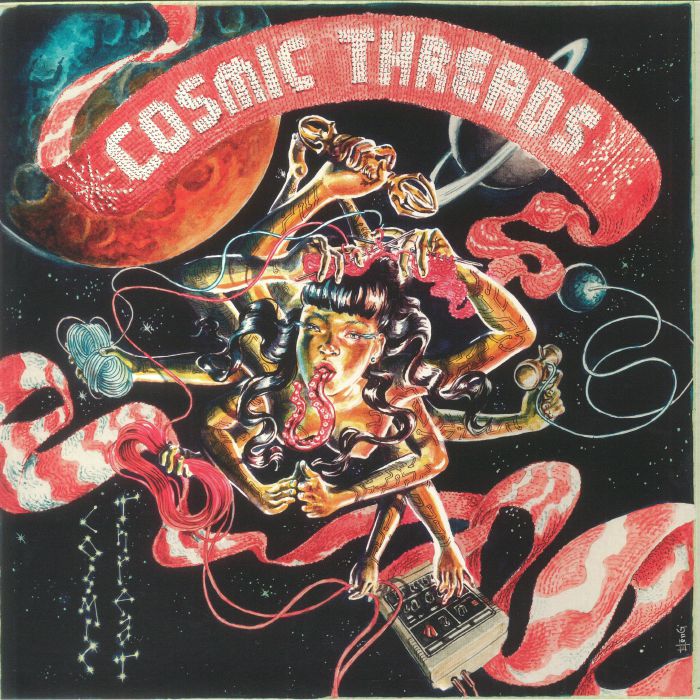
Cosmic Threat – Cosmic Threads (Jahtari)
Jahtari continues to plunge further into the hinterland of dubwise abstraction with some of the boldest ideas pinging around the feedback loop. Label boss Disrupt has been edging into evocative soundscape territory on recent albums, while crucial regular Kiki Hitomi has been spearheading wildly adventurous projects such as WaqWaq Kingdom, not to mention her own debut solo album Karma No Kusari from 2016. That album featured Disrupt on the buttons, and so Cosmic Threat coalesces as a sort-of follow-up, with Hitomi and Disrupt joined by bass clarinettist Volker Hemken for a voyage into spiritually-charged “interstellar jazz dub”, as the trio put it themselves.
It’s an apt term, and just make sure we’re clear on where we’re heading, the first track is a Sun Ra nod, ‘Space Is The Place’. The jazz element feels like a new force within the Jahtari soundworld, and it manifests in nimble Rhodes splashes and melodious supernovas on this knotty opening track. The beats are as satisfying as the playing on top, squashed and crunched and riddled with scuzzy charm, of course with plenty of space down low for the bass to throb. Hitomi meanwhile plays something of a spectral figure here and elsewhere on the album, her voice threading through misty clouds of reverb as a mystical spirit guide through the lofty voyage the music takes us on. She comes through clearer on ‘Cocoon’, ruminating on change in poetic fashion over a dislodged musical backdrop.
Cosmic Threads is all over the shop in the best possible way – the sound of three artists following their instincts and throwing down what feels good. There’s even space for a little of the Jahtari 8-bit skank of old on ‘Here Is Not There’, but this time in the context of a widescreen, synth’d up sci-fi opus. It’s a dense record with a lot to take in, but therein lies the staying power of such music, which will keep on revealing new dimensions the deeper you go into them.
OW
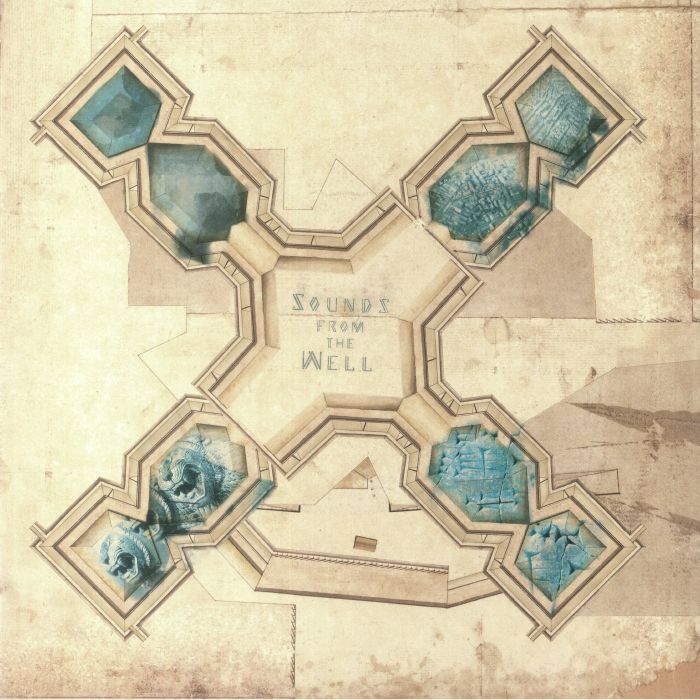
Various Artists – Sounds From The Well: Collection 2 (Khaliphonic)
Be thankful for the likes of ZamZam Sounds and sublabel Khaliphonic offering a reliable outlet for the finest contemporary dub sonics from around the world. On this second volume of Sounds From The Well, we’re plunged into a swirling vortex of established and emergent space cadets doing magical things with delay and reverb. It’s everything a compilation should be, presenting new sounds with authority while also holding together as a self-contained listening experience in its own right.
The idea of dub in this modern context is open to interpretation, ranging from Eomac’s tense pressure cooker ‘Wildfire’, which seems to conjure the spirit of Muslimgauze, to J: Kenzo’s low-slung, downtempo beatdown ‘Kotale’. Meanwhile Undefined drop something fast and fathoms deep, and Al Cisneros captures a deep south jam band twang in his own mixing desk soup. There are techier dubbings coming from the likes of Bristol’s Titus 12 & MTF and Pugilist, and a pure soundsystem feel from Marcus Anbessa, but whichever angle is being taken, the common denominator is an affinity for the core principles of dub. It’s the verve and spark these operators funnel through the dub tradition which makes for such potent end results – if you value these qualities, don’t sleep on this one.
OW
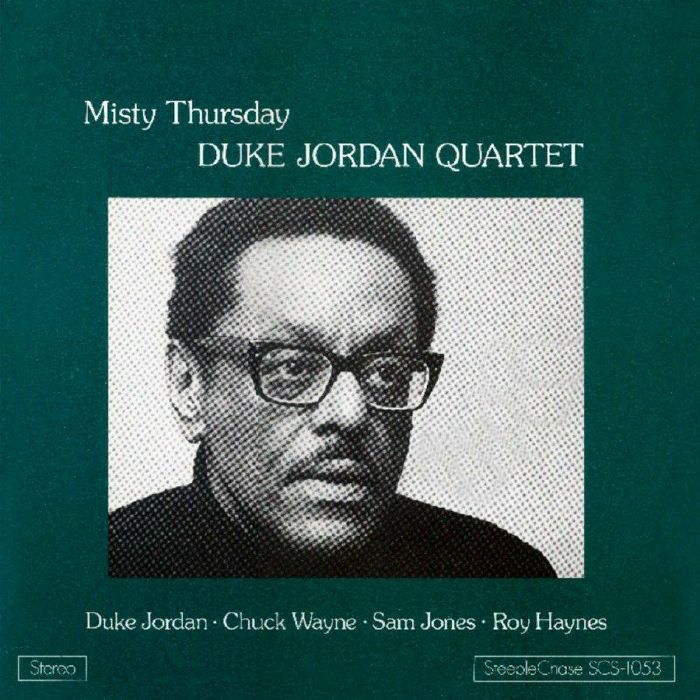
Duke Jordan Quartet – Misty Thursday (SteepleChase Records)
By the mid-1970s, amidst a booming new market for jazz fusion records, many traditionally inclined artists were left out in the cold by major labels. One such musician was the lyrical bebop pianist, Duke Jordan. Despite an impressive career as accompanist for the likes of Charlie Parker, for more than a decade Jordan was ignored by the American recording industry, forcing him to become a cab driver before eventually finding work in Europe.
Thankfully, Danish imprint SteepleChase Records (who released this record) had become a haven for these artists who were no longer trendy in the US. From 1973 to 1985, Jordan would record 22 dates with the label, one of which is the breezy album, Misty Thursday. From the swinging, jovial “There’s A Star For You” to the atmospheric title track, there is a calming familiarity to Jordan’s playing. The quartet, comprised of Jordan (piano), Chuck Wayne (guitar), Sam Jones (bass), and Roy Haynes (drums), were not reinventing the wheel here. Instead, Jordan’s seven original compositions form a loving and effective ode to the bebop style. Along with Misty Thursday, it’s worth checking out all of Duke Jordan’s SteepleChase releases.
NS
This week’s reviewers: Ian Watson, Noah Sparkes, Patrizio Cavaliere, Oli Warwick.